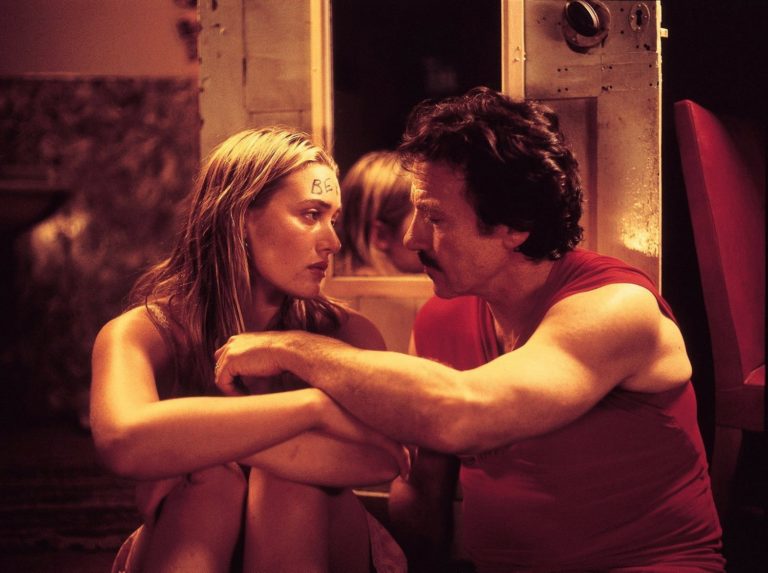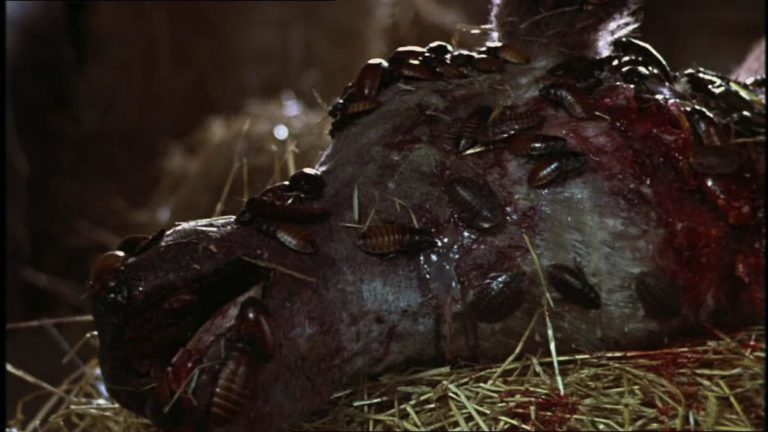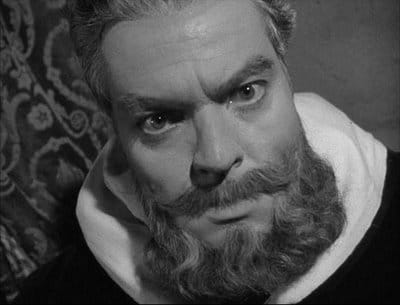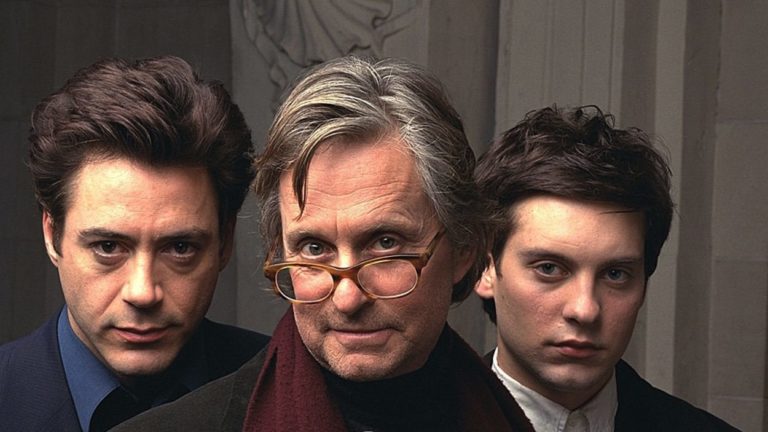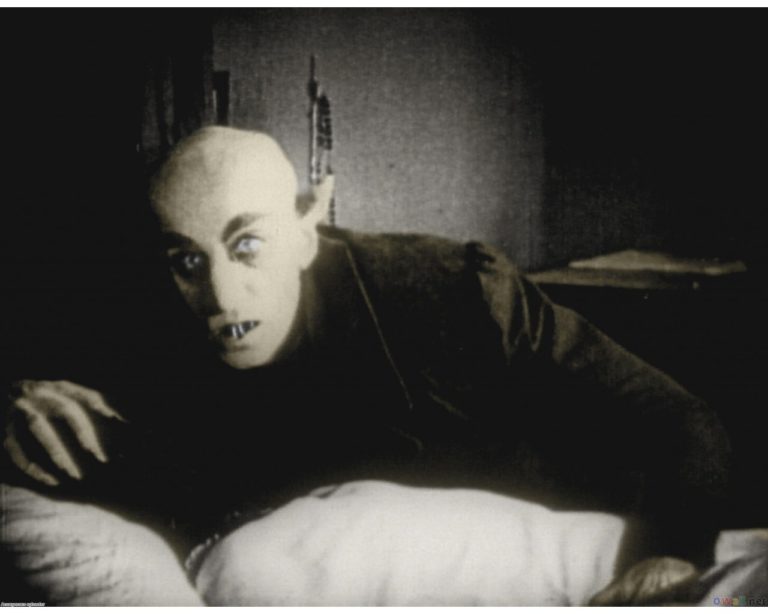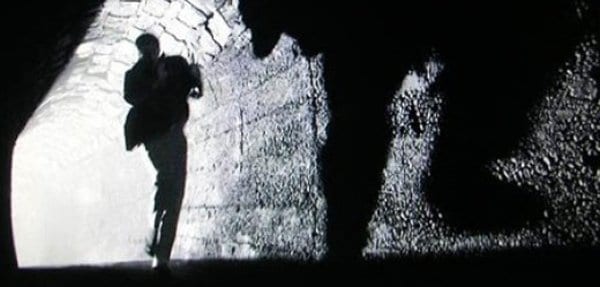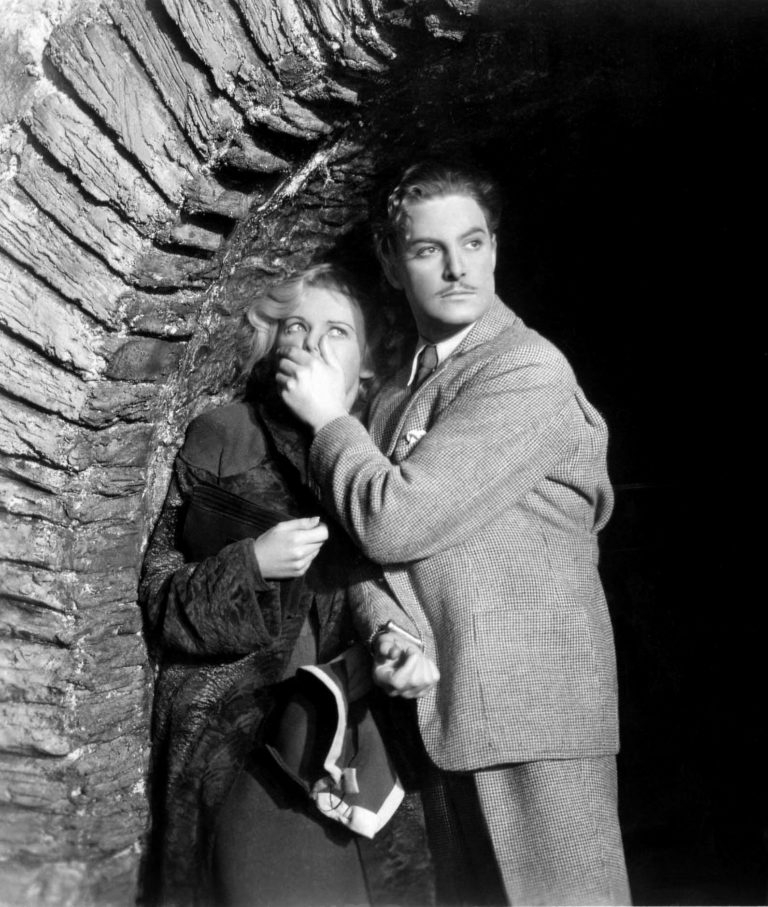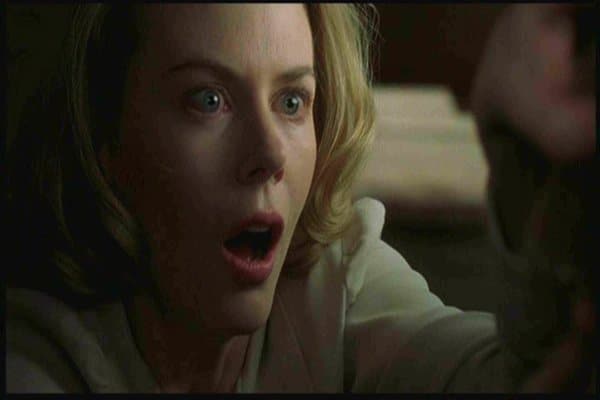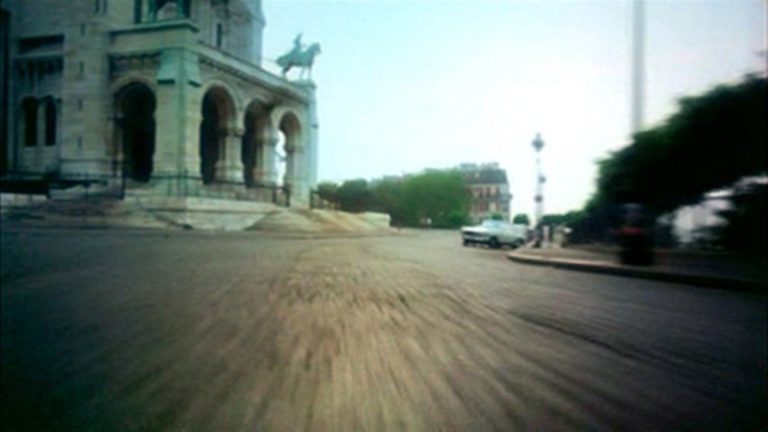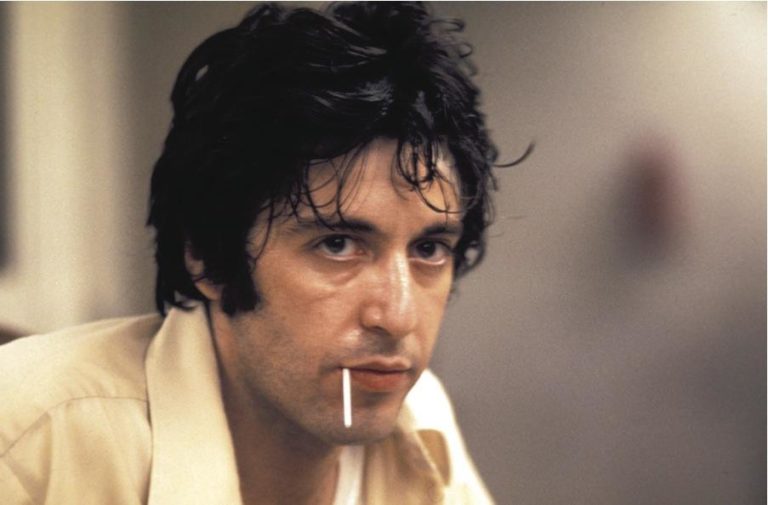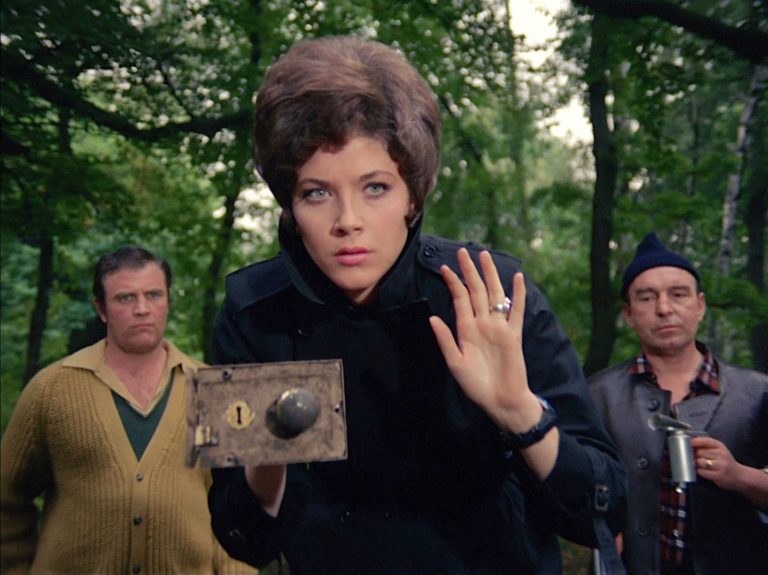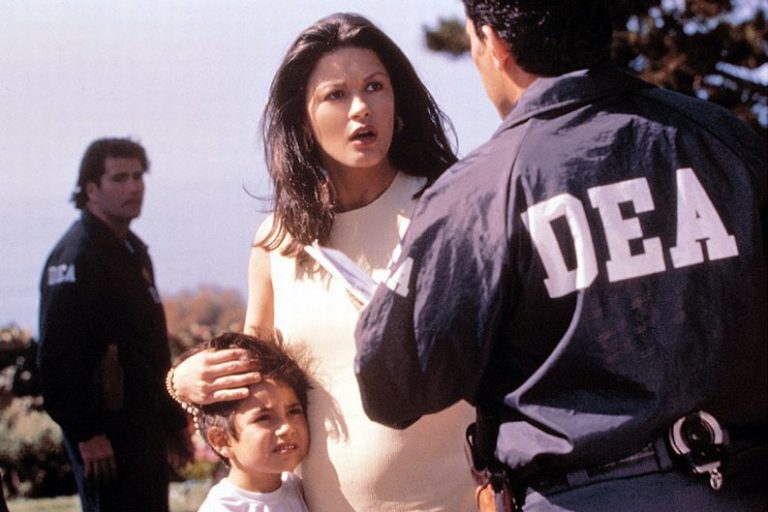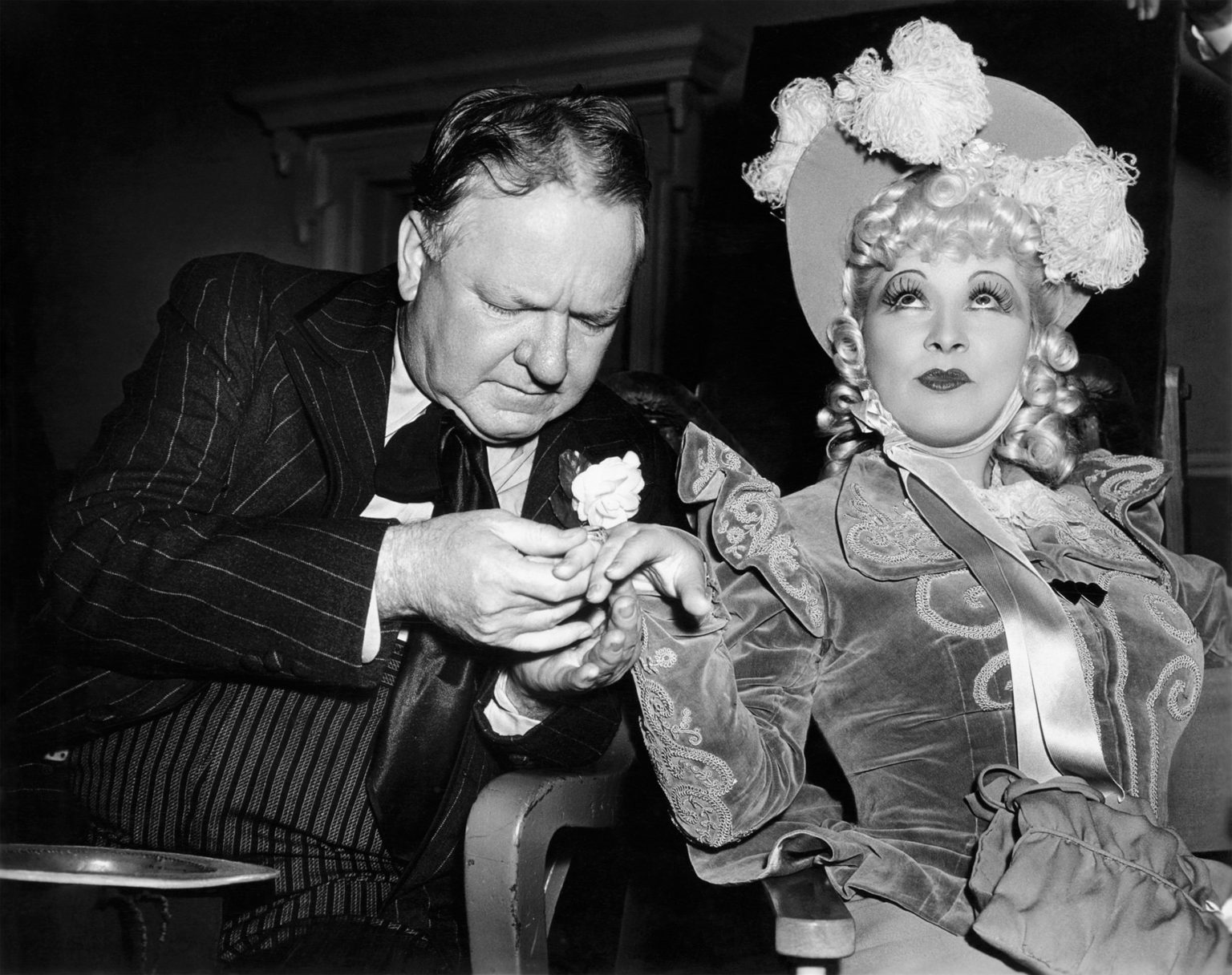
See This
Holy Smoke
A maker of thoughtful films, some hugely successful (The Piano), some not (In the Cut), Jane Campion here takes a small film – about a cultbuster (Harvey Keitel) and his intensely focused efforts to deprogram a naive Oz girl (Winslet) who’s been got at in India – and produces a sly, dry comedy of trans-Pacific manners. Being set in Australia really helps it, those highly personal, dialogue-heavy interchanges between the two main players being balanced against huge backdrops (does it come any bigger than the Outback?). Keitel is a presence it’s hard to miss too, of course, but he’s offset by deliberately ripe caricatures by some of Oz’s finest, the meat in the … Read more
Audition
The horror film has a special use for the young female body. How often does one crescendo with some girl in a tight white T shirt – if not Jessica Biel then someone pretty similar – running endlessly, screamingly away from a scaggy male assailant with a hook/axe/chainsaw/knife? Meanwhile a man with a Steadicam aimed right at the young woman’s breasts in turn runs backwards away from her, to the nodding appreciation of the largely male audience. Audition turns the tables – a sad sack of a Japanese salaryman pretends to be a producer holding auditions for a film. In reality he’s doing try-outs for something more permanent and less well paid – … Read more
They Nest
We’ve had them all – alligators, piranhas, anacondas, killer bees and most famously birds and sharks. So what’s left? Insects, of course. In 2000’s They Nest (aka Creepy Crawlers), the time is the present, the scene is the island of Maine off America’s east coast, and the action kicks off when a swarm of cliched, unbelievable and laughable B-list actors assemble and draw lots to see who’s going to suffer the first low-budget extermination at the hands, mandibles, whatever, of crazed crawling creatures. Meanwhile a brave, resourceful, wise and intelligent doctor (Thomas Calabro) is battling to get it through the skulls of the locals that they’re in more peril than they can possibly … Read more
Confidential Report
The prevailing wisdom on Orson Welles has changed in recent years. It used to be: “Poor Orson, his masterpieces (such as The Magnificent Ambersons, It’s All True, The Lady from Shanghai ) butchered by the studios”. Now it’s: “Lazy Orson, got most of the way through a film and then lost interest”. Certainly Welles subscribed to the former view, and broadcast it widely wherever he went in Europe during his exile (or extended flake-out, take your pick). Confidential Report fuels the debate. A shadow of both his masterpiece, Citizen Kane, and Carol Reed’s The Third Man (in which Welles played the similarly gnomic Harry Lime), the film jumps around the world excavating the … Read more
Wonder Boys
Michael Douglas plays the college prof with one book under his belt and a smart-ass student (Tobey Maguire) about to steal his thunder with his debut novel, which is going to be glorious, headline-grabbing, sexy, everything Douglas once was but now just isn’t. However, this fading wonder boy does still have enough residual kudos to make him a honeypot for a girl (Katie Holmes) who’s attractive dark-haired and far too young for him (and what a nudge nudge that was at the time). He’s also having an affair with his boss (Frances McDormand). And, on the weekend of frenzy that we catch up with him, he’s being pursued by his drug-monster editor, played … Read more
Nosferatu
Murnau’s 1922 silent expressionist classic is one of defining moments in movie-making. It borrowed its story wholesale from Bram Stoker’s Dracula, gave it the lightest of resprays and hoped no one would notice the theft. Bram Stoker’s widow noticed and sued for breach of copyright, won the case and had all the prints of Nosferatu destroyed. But the film refused to die, and rose from the undead. Its star, who plays Count Orlok (aka Nosferatu), is one Max Schreck, “Schreck” being the German word for terror. Maximum Terror – and you thought modern Hollywood had a lock on this sort of thing. Adding to that in terms of myth-making, it was always rumoured that … Read more
Le Procès aka The Trial
An arch bullshitter of the first water, Orson Welles fell on Franz Kafka’s The Trial like he fell on everything – mountainously. Kafka’s is a simple story – about Joseph K, a man arrested for an unspecified crime, who is taken through a legal process, all the way protesting he’s innocent. Is he? We can never tell, since the narrator is K himself and it’s impossible to work out if he’s lying or not, though he does increasingly come across as a shifty piece of work. Not unlike the artful Mr Welles, who protested to the end of his days that Hollywood had found him guilty of an unspecified crime and had banished … Read more
The 39 Steps
There are several filmed versions of John Buchan’s novel. The other two notables have Kenneth More and Robert Powell in the lead. But this one, in spite of its antiquity, is the best. It stars debonair, pencil-moustached Robert Donat as the innocent man forced into going on the run after accidentally getting caught up at the wrong end of someone else’s spying caper. The “innocent” theme was something Alfred Hitchcock was already comfortable with in 1935 and one which he’d return to repeatedly, most notably in North by Northwest. If you’ve read John Buchan’s original book, you’ll know The 39 Steps is a taut thriller full of derring-do, a rattling good read even … Read more
The Others
Oddly, quite a few people hated this atmospheric ghost story when it came out. It’s a tale with a twist, set just after the end of the Second World War and it’s directed by the Spaniard Alejandro Amenábar. He was a cult name back then, thanks to Tesis and Abre Los Ojos and perhaps he was a bit too out there for some tastes. Nicole Kidman plays the woman waiting for her missing husband to return from the war, a too-dutiful mother who keeps their kids locked away from the light (they’re allergic to it, she says) in a weird dark house kept functioning by a trio of servants. They, we have seen, turned up … Read more
C’était un Rendezvous
The story goes that after wrapping on a film starring Catherine Deneuve, having come in under budget and with a day of shooting time left, as he often managed, director Claude Lelouch decided to do something mad and foolish, make a guerrilla short. All you need to make a movie is a gun and a girl, is how Lelouch’s New Wave colleague Jean-Luc Godard had put it. Lelouch set out to show you didn’t need even that, just a fast car and a camera strapped on the front. And that’s what C’était un Rendezvous is, a single shot from a slow-slung camera, as the car it’s attached to (a Ferrari?) hurtles through the … Read more
The General
Buster Keaton’s favourite of his own films got off to a poor start in 1927. A flop at the box office and poorly received by critics (“the fun is not exactly plentiful” said the New York Times), it’s now considered to be one of the greatest films ever made. Is this high ranking down more to nostalgia for a simpler time or campaigns mounted by lovers of the hair shirt? Possibly a bit of both. But strip away the nonsense and you’re still left with something remarkable. The gags, for the most part revolve around The General, the steam locomotive of which Keaton is the engineer. The most famous of these is the … Read more
Dog Day Afternoon
Look at all those 1960s heist movies – gents with David Niven accents in cat-burglar outfits effortlessly walking out of Monte Carlo with a heist of diamonds. How different the 1970s heist movie. In the decade when it became apparent that, economically, everything was falling apart, director Sidney Lumet caught the mood perfectly in a bank job movie set in a city crumbling faster than most others, New York. And there’s Al Pacino as our hero. Not a normal bank robber, but a slightly rubbish one, married but gay, cackhandedly stealing money so his boyfriend can have a gender reassignment operation – sexual orientation being another one of those little things that seemed … Read more
